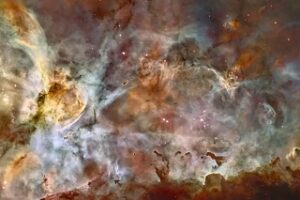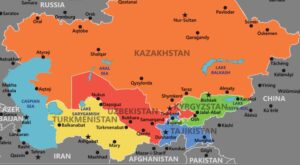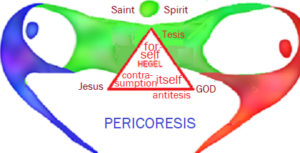
Arquivo para a ‘’ Categoria
Vanity and true treasures
For many the world, history and even personal happiness develops around wealth, false treasures and some public recognition, in fact, everything is vanity and a large part of human energies are consumed in it, without finding true joy, not that euphoria, frenzy or catharsis, but that of gaudio and inner peace.
around wealth, false treasures and some public recognition, in fact, everything is vanity and a large part of human energies are consumed in it, without finding true joy, not that euphoria, frenzy or catharsis, but that of gaudio and inner peace.
Socially, it means collaborating so that all the good around us spreads and everyone can be happy not with big undertakings, big parties or even other fleeting joys, all this is gathering false treasures.
There is a joy in the true perennials, that as a biblical verse says “where moth and rust corrode and where thieves break through and steal” (Mt 6,19), but those that exist in the bonds between good people, as Aristotle defined for the kind of true friendship.
Accumulating true values, true friendships and true goods that are not those that only material wealth confers, means more than having a virtuous life, it is a path that leads to inner peace and a balanced happiness that is beyond what happens and for this reason it tastes like eternity.
In times of wars, hatreds and false polarizations (these are not poles between what is eternally true and false, but temporal rivalries), they experience only the taste of a fleeting, narcotic happiness and a fleeting and short-lived intoxication.
It is better to cultivate values and feelings that are durable, and they need love and dedication to spiritual asceticism, than to cling to the passenger who will later demand a more difficult and painful kind of renunciation precisely because it doesn’t taste like eternal.
Wise men, saints and great philosophers sought this type of gaudio (a more balanced and lasting happiness) but it is impossible to achieve it with temporal attachments: vanity, greed, oppression and feelings of low morality because they cannot have durability precisely for what they represent: its limitation in a time lapse.
In a society of performance, activism and low or little ability to perceive, live and contemplate what is really beautiful and eternal, only those who go beyond vanity and temporal pleasure can achieve this kind of joy, he precious jewels of eternal life.
Friendship and espirituality
Idealist philosophy places amgio and friendship in an ideal  philosophical relationship, Aristotle nevertheless warns: “the friend is made quickly, while friendship [is a fruit that matures slowly”, the same can be said of spirituality, recognizing that we have a part spiritual and that it is part human, requires an exercise in spirituality.
philosophical relationship, Aristotle nevertheless warns: “the friend is made quickly, while friendship [is a fruit that matures slowly”, the same can be said of spirituality, recognizing that we have a part spiritual and that it is part human, requires an exercise in spirituality.
It was Sloterdijk, one of the great thinkers of Germany today, who warned that we live in an “exercise society”, but warns that it is de-spiritualized.
High spirituality, before reaching the divine, must go through previous stages in the relationship with the Other, the one who is not a mirror, who does not have the same values as us and this relationship can evolve or obstruct, being more difficult when there is an obstruction to maintain a relationship of respect and cordiality, as friendship and love are more distant.
It is possible to love those who obstruct everything, yes, it is possible first to maintain respect, then separate what are values and real exercises in spirituality and what is just interest.
At this point, friendship has a very close relationship with the spiritual, it can be said that there is, in addition to friendship, reciprocity, a continuous flow of relationship between good people, what Aristotle defined as true friendship, for this you need good men.
There is no just society without just men, there are no friends without friendship exercises, and only on the basis of true reciprocity can friendship reach the spiritual level.
Only with good men can society be saved, says a curious biblical passage about Sodom (Gn 18,20-32) in which Abraham asks God if with a small number of just men society would be saved, and he reduces the number because he knows that there are few.
For those who believe the biblical verse, the teacher explains this question (Lk 1:5-8): “If one of you has a friend and goes to him at midnight and says to him, ‘Friend, lend me three loaves of bread, 6because a friend of mine has come on a trip and I have nothing to offer him,’ and if the other replies from within, ‘Don’t bother me! I have already locked the door, and my children and I are already in bed; I cannot get up to give you the loaves’; 8I tell you that even if the other does not get up to give them because he is your friend, he will get up at least because of his impertinence and give him whatever he needs.”
If one wants to achieve reciprocity, he must first take steps in respect and friendship, and the highest spirituality is to be able to love and respect enemies..
Friendship and concepts
We have already posted and explored the concepts of friendship in Aristotle for pleasure, for interest and true friendships, we also highlight the difference between the partner and the neighbor (Paul Ricoeur’s text) where in the first case there is only interest and once the friendship is over closes or diminishes.
in Aristotle for pleasure, for interest and true friendships, we also highlight the difference between the partner and the neighbor (Paul Ricoeur’s text) where in the first case there is only interest and once the friendship is over closes or diminishes.
What we want to explore a little bit now is what it means in an individualistic world and where interest reigns, what is the concepts of friendship and friend.
In another perspective, in which Deleuze and Guattari go so far as to say that the friend and friendship are “absent” concerns in philosophical thought, and the book “A friendship de Maurice Blachot” is mentioned as a rare exception, but there is already at the base of this discourse a clear distinction between friend and friendship.
So the philosopher is a “friend” of wisdom (philos-friend and sophia-wisdom), but there is a compulsory obligation due to “friendship” being the object of this relationship, and thus only these friends could participate in the friendship, that is, there is a requirement of wisdom.
The basis of this concept is in the “gaze” of a so-called “sage”, so they are concepts within each one, they are the eyes or look of each one on another person, but this look is a sensation that does not come from the eyes of the senses or of personal feelings, so they are a nobody’s gaze, a demand for observation, a selfie that must be seen by another.
But how can you be a friend while being nobody? This question makes more sense when it comes to a dimension in a highly differentiable plane, and thus it can be seen in certain historical, political and even religious contexts, where each thinker is taken individually as having a “look” of sage, or of pretended wisdom.
One can illustrate with Guattari and Deleuze himself, and thus we can divide friendship into concepts of different contexts: the Greek, the Nietzschean, the Heideggerian and the Focaultian.
Such an inquiry aims to explore the territory of friendship as a concept, because if, as we said, it is a highly differentiable dimension or plane, then it can be detected in certain historical periods or even in each thinker taken individually. We will then try to define and illustrate, from the elements that we have just lent to Deleuze and Guattari, in a way appropriate to the extension of this article, four types of friendship of the concept, the Greek, the Nietzschean, the Heideggerian and the Foucaultian, but it’s just a rhetorical exercise.
It can be worthwhile as an exercise in thought, friendship is simple and there can be, and there are, among simple people with little book culture, and there may not be among “cults”.
I venture to say that there is more true friendship between simple people, than Heidegger says in his Forest Path in which he lives with very simple people.
Star Wars and James Webb’s First Images
Russia is developing an orbital station capable of destroying satellites in orbit, it is a clear reference to Elon Musk’s StarLink send internet signals and other satellites that scour wartime images.
satellites in orbit, it is a clear reference to Elon Musk’s StarLink send internet signals and other satellites that scour wartime images.
In November last year Russia successfully tested the destruction of its own inoperative spacecraft “Tselina-D” which had been in orbit since 1982, the missile was launched from the ground.
According to General David Thompson, deputy head of operations for the US Space Force, in a statement to the Washington Post, US satellites suffer attacks from China and Russia “every day”, so the war already extrapolates the planet, while ground wars are prolonged.
On the other hand, today is the day of the first photos observed by the James Webb telescope, at 11 am in Brazil, one of them will be the Carina nebula (photo taken by Hubble above), located 7,600 light-years away, where the objective is to understand the birth of the suns, which in this nebula are immense and in quantity.
On one side the birth and on the other the death of stars, another James Webb image will be of the Southern Ring nebula, an immense cloud of gas that surrounds a dying star and is about 2,000 light years from Earth.
A third target is historical, it is the Stephan’s Quintet, the first compact group of galaxies that was discovered in 1787, a period still with limited telescopes and that is in the constellation of Pegasus.
Using a special spectroscopy technique, which allows you to see the chemical composition of a distant object, a giant planet called WASP-96 b, discovered in 2014 and which is 1,150 light-years from our planet.
The fifth target, not necessarily in this order, will be the use of a cluster of galaxies, SMACS 0713, which works as if it were a cosmic magnifying glass and allows us to see other galaxies behind, and which will be the most fantastic experience for astronomers.
On the one hand, imprisoned and at war on our tiny planet with threats of war, and on the other, a look at infinity that should make us open our minds and souls to a new future.
Conscience, truth and clearing
Consciousness can be classified in different ways, but i t is far from the whole to which the entity belongs (identified as material reality in modernity) it forgets being, thus what in fact is consciousness remains hidden and is closer to the sentience to which it is refer to artificial intelligence and what could be called machinic consciousness.
t is far from the whole to which the entity belongs (identified as material reality in modernity) it forgets being, thus what in fact is consciousness remains hidden and is closer to the sentience to which it is refer to artificial intelligence and what could be called machinic consciousness.
The clearing that emerges from being, already posted here, is the one that is contained in the context of a whole, and from it emerges the being, and this criticism can be extended to all modernity, where there is a fragmentation and everything refers to the part, often even opposed to the whole to which the entity belongs, and from it emerges the question of being, as Heidegger intended.
This whole is also claimed by Edgar Morin, who is 101 years old today, and together with Lima de Freitas and Barsarab Nicolescu, writing in Arrábida’s “Letter of Transdisciplinarity” (1994) as “the contemporary rupture between an increasingly accumulation and an increasingly impoverished inner being leads to the rise of a new obscurantism, whose consequences on the individual and social plane are incalculable” (Arrábida, 1994).
This type of formal consciousness also takes a notion not only of knowledge, but also of culture and even religion, to a deviation away from the clearing of Being and subject to formal rules and precepts, of Law and knowledge in an apparently rigorous but inhumane logic. and that hides the Being.
In culture, it means limiting the conception to a particular type of culture, of a single worldview, which is valid, but which cannot be imposed on other worldviews, especially the original ones.
For Christians, the biblical passage that clarifies this false consciousness is that Jesus is questioned by a master of the Law, specialists in formal consciousness, asks the master what he needs to do to conquer the divine kingdom, and Jesus says in modern language respect the Other and admits the Divine Being par excellence, the one who is the All in a monotheistic worldview (God).
However, the parable of the Good Samaritan is told immediately afterwards and makes the formal conscience clear, the parable says that a man was robbed and mistreated by robbing and he stood by the wayside, a priest and a Levite passed by (a tribe from which religious came from that time) and turned away from the problem, a Samaritan passed by (who was a people without religion and who did not like the Jews) and offered help, put oil and wine on the wounds, put it on his animal and took him to a pension paying his stay. and if it lasted longer, I would pay on the way back.
Only the Samaritan had an attitude of true conscience towards man, so Jesus told those who asked how to conquer the divine kingdom “Go and do likewise” (Mt 10:37).
Heidegger e a clareira « Blog Marcos L. Mucheroni Filosofia, Noosfera e cibercultura (marcosmucheroni.pro.br)
Winter can be terrible for war
In a videoconference with the G7 in this Monday (06/27), Ukrainian President Volodymyr Zelensky called for the war to cease until winter, always a harder period for troops and for regions at war, this indicates two concerns: an intensification of battles in autumn (in the southern hemisphere it is the spring, from September to December) and possible difficulties in the supply of gas and food in the period.
Ukrainian President Volodymyr Zelensky called for the war to cease until winter, always a harder period for troops and for regions at war, this indicates two concerns: an intensification of battles in autumn (in the southern hemisphere it is the spring, from September to December) and possible difficulties in the supply of gas and food in the period.
On the Russian side, the gas supply cut, which has an obvious financial sacrifice, could mean a collapse in heating systems, domestic and industrial use in the region.
The G7 meeting started Sunday (26/06) with the countries: USA, UK, Germany, Italy, Canada, France and Japan, and the videoconference was held on the 2nd. Fair (27/06), the president also denounced the Russian attack on a crowded mall in the Cremenchuk region, with more than a thousand people.
The battles are still tough in the Dombass region, although there is Russian advance, the cost in troops, armaments and morale has been high for both sides, in short, there is a growing hatred and a possibility of peace increasingly distant.
In a political effort, the president of Russia will make his first trip abroad visiting two former Soviet states: Turkmenistan and Tajikistan, and then he will still meet with Indonesian President Joko Widodo, there are no statements on the subject of the talks, but with It’s certainly a geopolitical issue (see map).
But behind this trip there is a more worrying objective, Putin’s concern with borders, in this case with the countries of Asia, indicates both nostalgia for the former Soviet Union and a long-term warlike concern, this has a dark outline for the future. of humanity.
Of course, there is no one-sided warmongering, also the NATO response has been harsh as Sweden and Finland officially hand over the request for entry into NATO, Moldova and Georgia is also preparing its entry, while Ukraine lives waiting for a late entry.
The scenario is extremely worrying for autumn in Eastern Europe, which is spring in the Southern Hemisphere, a growing concern about the supply of food and oil agitates the entire world, but the biggest nightmare is the war itself and its contours.
Few and heroic voices unite for peace (see our post), the concern about polarization is now worldwide.
The path and being
Even if I have read Heidegger, few have read at least in its entirety O ser e o tempo, or another work that I consider important The origin of the work of art, and the most controversial (at least currently) that is Letters on Humanism, not only because Sloterdijk rejected it, but because thinking about what humanism is today is the most important task in trying to save civilization.
entirety O ser e o tempo, or another work that I consider important The origin of the work of art, and the most controversial (at least currently) that is Letters on Humanism, not only because Sloterdijk rejected it, but because thinking about what humanism is today is the most important task in trying to save civilization.
Just look around, from the pandemic to war, the extreme and sometimes irrational political politicization, and not only all of this, but especially the sharp look and thinking that saw beyond appearances.
There are two good biographies of Heidegger, one by Hugo Ott, which I read in pieces and another that I read and passed on to so many friends, which is Rudiger Safranski’s, both deserve to be read and are not Heidegger.
On the way through the forest, the time that Heidegger spent around the fire, where he smoked his pipe with the peasants and woodsmen of the Black Forest, it is said that in silence, perhaps it says more about Heidegger than his philosophy, says something of the poetry he did not write. , but lived.
It was there in an interview that Heidegger gave to Der Spiegel that he said (not in a religious tone but in a tone of disbelief) he said the phrase: “Only a God can save us”, and he was right.
The rustic and simple hut that Heidegger inhabited during the time he wrote Being and Time, was also his refuge in the time of the Forest Path, and of a short little-known writing that “Creative Landscape: why we perpass in the province”, that it is not a compliment to the province, but the need for a contemplation that urban life had lost, a path similar to the one that a younger philosopher Byung-Chul Han wrote in The Society of Fatigue.
It is written in “Creative Landscape”: “The city dweller thinks he “mingles with the people” as soon as he deigns to have a long conversation with a peasant. At night, on a break from work, when I sit by the fire with the peasants, or at the table in the Herrgott swinkel, then most of the time we don’t say anything. We smoke our pipes in silence”, the note clarifies that Herrgottswinkel is an establishment in the countryside.
So it’s not isolation or provincialism, but a pause to get back on track.
HEIDEGGER, M. (2014) Paisagem Criativa: Por que permanecemos na província , in: Idéia. Campinas (SP)|n. 9.
Being and the Imperishable
It was Justin Saint and Christian Martyr of the second century, who, meeting an Elder, who is in his book Dialogue with Trypho, he understood that it was God’s desire that the soul be immortal and this separated it from Platonism, a philosophical path that had traveled after the Stoics.
meeting an Elder, who is in his book Dialogue with Trypho, he understood that it was God’s desire that the soul be immortal and this separated it from Platonism, a philosophical path that had traveled after the Stoics.
Justin is the first in Christianity to deal with the problems of philosophy in a contemplative and philosophical way, his work was not systematic (Apology I and II), but fundamental to a philosophical path of Christian thought, and influenced many thinkers of patristics of early Christian times. .
For his Christian faith, Justin was denounced and beheaded.
Thus, something imperishable inhabits the Being and is essential to it, the simple contemplation and asceticism that does not contain this premise is incomplete, however the access to this truth depends on a stage of beatitudes, those that are in Matthew 5, I highlight 4 that are contextually (Mt 5,5-9): Blessed are the meek, for they will inherit the earth, Blessed are those who hunger and thirst for justice, for they will be filled, Blessed are the merciful, for they will obtain mercy, Blessed are the pure in heart, for they will see God, Blessed are the peacemakers, for they will be called children of God.
But all this is not imperative to reach an immediate access to the divine, eternity is timeless and in it time is differentiated, it is a Kairos, or a time on the divine clock.
And all this is not separate from everyday life, which contains an “Scent of Time” as proposed Byung Chul Han, a divine humanly lived in each action and thus is not separate from contemplation, but has a different cadence from pure and simple activism.
Christian following is deeper because it requires renunciation, it is not enough to find Jesus or the Divine, in Lk 9:23, the master himself taught: “Then Jesus said to everyone: “If anyone wants to follow me, let him deny himself and take your cross each day, and follow me. For whoever wants to save his life will lose it; and whoever loses his life for my sake, he will save it.”
And this is the hardest and most definitive lesson.
Being and action
Being is not inactivity, because it is being that determines its action, but the pure project on action empties being, it is activism or “vita activa”, the one that Husserl, Heidegger, Hannah Arendt, and more recently Byung Chul Han question about the absence of vita contemplativa, the interior.
but the pure project on action empties being, it is activism or “vita activa”, the one that Husserl, Heidegger, Hannah Arendt, and more recently Byung Chul Han question about the absence of vita contemplativa, the interior.
It is not about subjectivity, because it is precisely the separation between objective and subjective being that is the first great impulse for the emptying of being, it is not also about the social being, it is what is projected in man’s consciousness, in the intention that it directs to the object, to the external life.
The “vita activa” (life in action) was thus expressed by Hanna Arendt: “The expression vita activa, comprising all human activities and defined from the point of view of the absolute stillness of contemplation, therefore corresponds more to the Greek askholia (occupation, restlessness) with which Aristotle [defines] all activity, which the bio politikos of the Greeks. The expression vita activa is permeated and overloaded with tradition. It is as old as our tradition of political thought, but no older than it. The expression itself, which in medieval philosophy is the consecrated translation of Aristotle’s bios politikos, already occurs in Augustine where, as vita negotiosa or actuosa, it still reflects its original meaning: a life dedicated to public and political affairs” (Arendt, 2007, p.23), in this explanation by Arendt there is also a complete translation of the political animal.
What action is for Arendt, is not that of activism or voluntarism, but that which takes place “between” men, depends on intersubjectivity (the relationship of interiorities), which she says thus: “the end, the last of the elements of vita activa addressed by Arendt is action. Action is the element of interpersonality and the environment of intersubjectivity, that is, it occurs between men. Therefore, because it is developed between people, the action is observed in a prominent way from labor and work, such elements do not influence it.
So what considers the human condition of action is plurality, he says textually: “Considering that action is an activity of free men in the public sphere, it is an expression of human plurality. Its realization depends on the coexistence between different individuals. However, since action requires an interactive diversity, it particularizes men. It promotes the appearance of individualities and enables the construction of identities. Now, man will never be able to manifest his uniqueness in isolation. Nobody shows what it is in the personal sphere of intimacy. Only when he is with others can man reveal what he is” (ARENDT, 2007, p.189).
But Hannah Arendt considers modernity in crisis only from the beginning of totalitarianism and the events of the two world wars, and in our view the problem already arises in rationalist/idealist thinking.
ARENDT, Hannah. (2007) A condição Humana. (The Human Condition). 10th ed. Rio de Janeiro: ed. Forense Universitária. .
The Spirit for the Religion
One of the important features as a starting point in Hegelian thought is the concept of religion, and in it the final stage of the construction of the subjective thought of idealism, which after moving from the subject to the object, creates an idea of representation in itself and for yes.
thought is the concept of religion, and in it the final stage of the construction of the subjective thought of idealism, which after moving from the subject to the object, creates an idea of representation in itself and for yes.
We have already said that a guiding thread is the idea of supersumption, which represents the consciousness of the movement of what opposes the object and the need for something of itself and for itself “ideal”, remembering from the previous post that the supersumption is an interaction between thesis and antithesis.
The concept of the self, which goes from the subject to the object and the self that transcends this path, does not contain the “other”, alterity, as thought in Christian ontology:
“The presence of an object is the presence of another, determined as the non-divine being, the finite world, finite consciousness. This finitude of the other is articulated in nature itself or in the spirit in itself, or in consciousness or in the spirit for an other”. (AQUINO, 1989, p.242).
Therefore, the contradiction already presents itself before the question of a divine “spirit”, Holy as Christianity presupposes, is in the consciousness of itself, and the question of the representation of the object.
The for-itself is not a beyond, but a return to the transcendent in-itself, a closure in itself, for this reason it does not contain the other, so the idea of subject is what differentiates from religion, it is the question of Being, a Being that it is Other, and not a for-itself that turns to the in-itself.
Thus, having observed this junction that refers to the presence of an object and another, both establish a relationship with consciousness, but consciousness itself is only interiority while the for-itself admits a beyond, since from the Greek this suffix means this, as parallax (beyond position), paradox (beyond opinion), etc.
In terms of representation, consciousness is in relation both to the world and to another consciousness, they still remain in the world, but a for-itself means beyond the world, beyond sensible and palpable reality, not only in the idea, but as To be.
A spirit thus thought transcends being and being-with-Other, making another-Being, which for many religions is the spiritual world, in which there is a Being par excellence.
The Christian trinitarian relationship is a for-itself-Beyond-Being, or a Being par excellence, therefore a Holy Spirit, which relates to the Being-in-the-World that is consubstantiated with the pure divine Being.
It is then beyond the supersumption, there is no thesis and antithesis, but each Being is in the Other, in the trinitarian reasoning: Jesus is consubstantiated in the Father, generated by the Holy Spirit, who is relationship with the Being.
The Christian Trinitarian relationship is perichoretic, that is, each being “interpenetrates” the other and there is communion.
Jesus reveals this perichoretic relationship to the apostles (Jn 20:21-22(: “Again Jesus said, “Peace be with you. As the Father has sent me, even so I send you.” And when he had said this, he breathed on them and said, “Receive the Holy Spirit”,” the divine reality in the human soul.
AQUINO, M. F. O Conceito de religião em Hegel (The concept of religion in Hegel). Brazil, Sao Paulo: Loyola, 1989.

